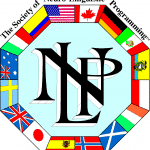

The first part of the Milton Model is called the NLP Inverse of the Meta Model. The Meta Model is a set of language patterns that can be used to describe an experience more in full. The Milton Model is the opposite of it. It allows you to be “artfully vague”. In the scope of being able to be artfully vague, it allows you to sound very specific and at the same time the suggestions given are general enough to be adequate for the experience of the listener. Where the Meta Model gives you a way to recover specific information that is deleted in any sentence, the Milton Model is the opposite. The Milton Model allows you to provide information in which all specific information is deleted. This requires the listener to fill in the deleted information provided by the Milton Model. How easy can your life be?
In the NLP Meta Model we have learnt to ask the right questions to reveal the Deleted, Distorted or Generalized information. Our aim as an NLP Practitioner is to pinpoint and gather complete information. NLP Inverse of the Meta Model.
Now one part of the Milton Model is called the Inverse of the Meta Model because we are going to utilize it in a specifically vague language. Remember that you are using the Milton Model in trance or hypnosis.
So the moment your client is in a deep state of trance, you can provide suggestions like:
The Same as the Meta Model, the Inverse of the Meta Model consists out of the following parts:
We are sure that you are looking for some exercises with the NLP Inverse of the Meta Model. We suggest that you read all about Gathering Information (Deletion), Semantic Ill-Formedness (Distortion) and Limits of the Speaker’s Model (Generalization). We have gone the extra mile on writing articles about it to learn you how simple it is. Read the articles and enrich your life. NLP Inverse of the Meta Model.
Remember, to increase your efficiency as a NLP Practitioner, know your positive intention for the message you want to convey, build rapport and pay attention on what and how you use language. Leave people and business in a better place that where you found them, every day! Put yourself to work and start making the NLP Meta Model part of your knowledge. The sooner you start, the sooner you benefit. NLP Inverse of the Meta Model.
Mind Tools provides NLP Practitioner and NLP Master Practitioner Trainings and Certifications. We educate you according to the renowned, latest and highest standards set by the Society of NLP. We will train you thoroughly in all the corners of Neuro-Linguistic Programming and some extras we learned from Richard Bandler directly.

Our NLP Practitioner Training starts in:
On Checkout use the code NLP10PCTOFF and gain an extra 10% off our already discounted price.